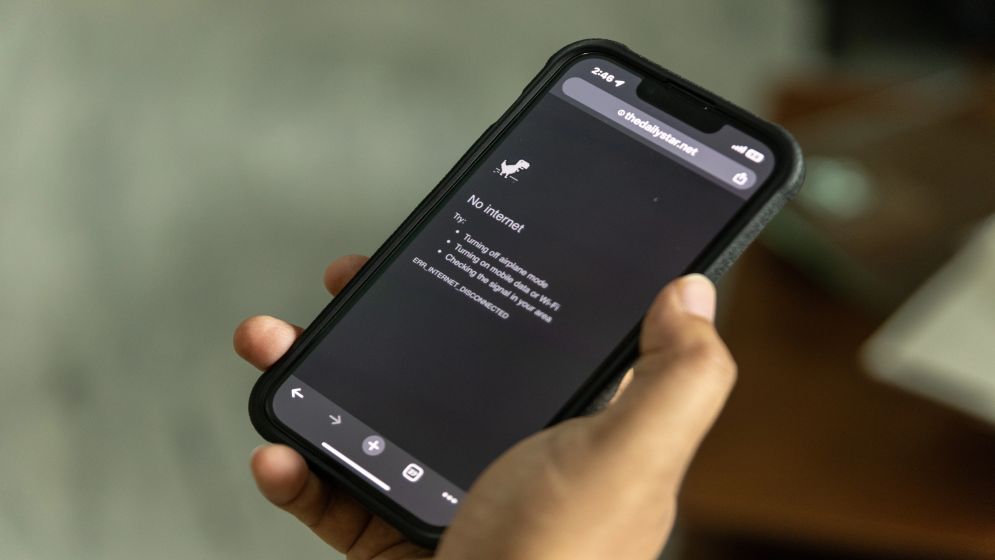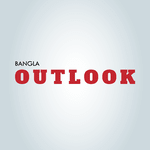Why was a total internet blackout a counterproductive move for Bangladesh in the digital age?

Unlike millennials who have experienced a life without the internet, Gen Z and younger generations have grown up entirely in the digital age.
The recent “complete internet blackout” which lasted for more than five days in Bangladesh has left them completely adrift, as they've never known a world without constant connectivity.
But it's not just the youth who are struggling. Older generations, who recently embraced the internet for leisure and connection, are also feeling the loss acutely.
The impact of the blackout is widespread. It serves as a stark reminder of how deeply the internet has become ingrained in every aspect of life, from business to personal communication.
The internet's absence, like a lack of oxygen, is suffocating and reveals just how much the country has come to rely on it in recent decades.
As we criticize the internet shutdown that the government allegedly framed as a consequence of political opposition vandalism rather than their own enforcement, it's crucial to closely examine what might truly be occurring.
On July 19, government officials on TV channels attributed the nationwide internet outage to a fire in a Dhaka building, contradicting earlier statements by Zunaid Ahmed Palak, the ICT state minister who explicitly mentioned an enforced shutdown.
Internet access had been intentionally cut off in the capital and other areas since the night of July 18, following a mobile data blackout earlier that day. This tactic of suppressing information flow during protests and elections is not new for the Awami League government, but it has often backfired.
For instance, during previous student-led quota or road-safety movements in 2018, shutting down social media and mobile data led to rampant rumors and misinformation, ultimately harming the government's image.
Interestingly, the government's actions during protests starkly contrast with their usual rhetoric of "Smart Bangladesh" and "Digital Bangladesh," promoting technological progress as a cornerstone of their agenda.
Why was internet shutdown counterproductive?
To their credit, the government has made strides in expanding internet access, funding tech initiatives, and recognizing innovation.
However, the cost of maintaining this image of a tech-savvy government appears to be the suppression of dissent, including student deaths at the hands of police and affiliated groups during protests.
When it comes to accepting responsibility for state-sponsored violence against students, advocates of internet and technology-led innovation are equally evasive. Palak, the ICT Minister of the country favored by startup founders and accelerators, has even suggested that Facebook and social media platforms are to blame for the deaths of students.
While Facebook/Meta's involvement in political violence and global atrocities is well-documented, attributing the summary execution of a fourth-year university student in Rangpur—or the confirmed deaths of 39 others in the protests—to Facebook's actions seems far-fetched.
The government meanwhile frequently employs the tactic of forcing telecommunication operators to restrict mobile data access or bandwidth, effectively disrupting communication among protesters.
Through pressure on tax collectors and regulatory bodies, the government has ensured that private tech companies comply with their requests for access and control.
This power dynamic extends to foreign entities as well. Fearing a loss of access to the massive user base in Bangladesh,companies like Meta and Google often acquiesce to government demands for user data and surveillance of encrypted traffic.
While other regions are actively working to protect user data through regulations like the EU's GDPR, the Bangladesh government is moving in the opposite direction, exploiting lax data privacy policies to surveil its citizens.
When interconnectedness backfire for the government
Ironically, the interconnectedness facilitated by the internet and social media, which the Awami League championed in their election promises, has become their biggest challenge.
To control this interconnectedness, the government has resorted to various measures, including repressive laws like the Digital Security Act, now replaced by the Cyber Security Act, threats against service providers, and surveillance tools.
They also have consistently used information blackouts during elections and protests to maintain control.
This raises the question: why promote digital innovation if the first response to a crisis is to shut down the very infrastructure they've built?
The contradiction between the government's push for technological advancement and their suppression of online dissent reveals a deep-seated fear of losing control in the digital age.
The answer is probably a stark reality for tech proponents: increased technology adoption leads to greater reliance on communication platforms that are ultimately under government control.
The wider the adoption, the wider the blackout. Protesters often utilize platforms like Facebook and Messenger for organizing. By first pushing them towards these platforms and then imposing a blanket outage during crises, the government makes the blackout doubly effective and crippling.
Resisting information blackout is crucial
In a country where political expression and mobilization are severely repressed, resisting information blackouts is crucial.
We have to realize that understanding how information is monitored and access is controlled is vital to protect freedom of speech, protest, and assembly. Every political protest is likely to face violent suppression and information warfare, whether through misinformation or state-enforced blackouts.
This reality underscores the need for alternative communication channels and strategies to bypass government control and ensure that the voices of dissent are not silenced.
If the events of the quota reform movement are looked back upon, it is not going to be any stretch of the imagination to assume conversations post-fact are also full of misinformation and biased attempts at manipulation of public opinion.
Numbers—of dead, injured, and picked up for questioning—will continue to be questioned, while events and narratives—that of law enforcement, the protesters, and state actors—will hold less and less value over time.
This is a direct by-product of the information blackout imposed on the nation's media houses and civilians.
After 15 years in power, it is reasonable to expect that the Awami League would feel secure enough in their position to allow open dialogue without attempting to control or disrupt it.
Dialogue is fundamental to any democracy, and if the AL aims to demonstrate that Bangladesh is a functioning democratic nation—whether in reality or merely in perception—it is crucial for the government to let information technology operate without interruption, even during political crises.
This is essential not only for upholding freedom of speech and assembly but also for maintaining their own political image.
—

